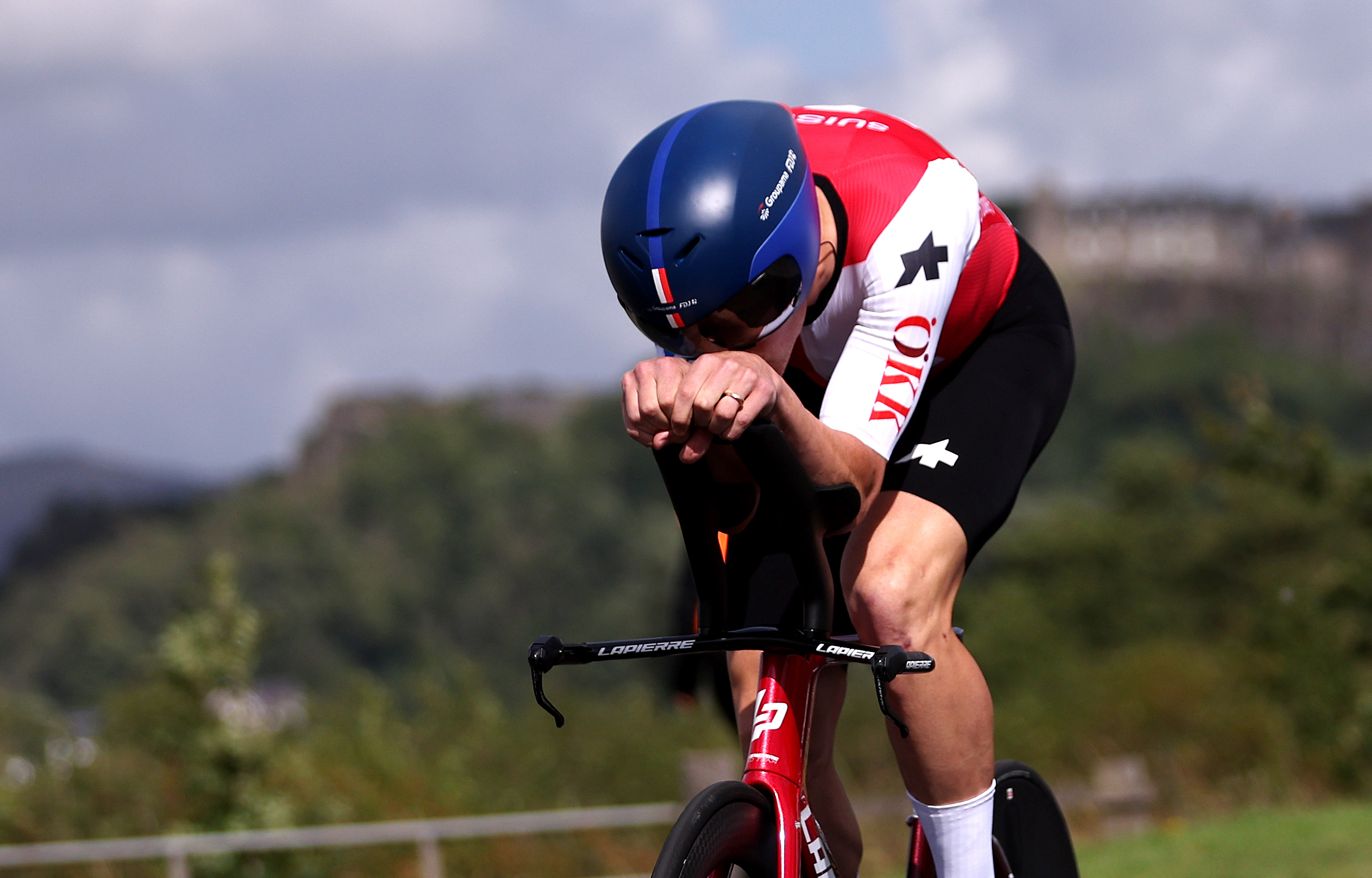
Stefan Küng has revealed he barely remembers his horrific crash from the European Championships, where he rode into the barriers and was allowed to remount his bike despite a bloodied face and smashed helmet.
The crash caused huge controversy at the time with many people criticizing Swiss Cycling and organisers for allowing the time trial specialist to ride to the finish in what was a confusing sequence of events.
Küng himself does not pass blame, suggesting it was a directional problem, as the white markings on the road led him to the barrier, which wasn’t as wide as the road.
His high speed of the time trial was also a factor.
“I think it was a guiding problem. During a time trial I am basically blind, I can only see a few metres ahead due to the position I have to hold and I have to trust the indications that come via radio from the team car,” Küng told SRF, revealing complexities if racing at high speeds in an extreme aerodynamic position.
“We've looked at it again, but it all happened very quickly. During a time trial I cover 50/60 metres of road in a few seconds, so if I make a mistake in an instant I'm on the ground without realising it.”
TV footage captured Küng’s horrific injuries but the 29-year-old Swiss rider was quickly back on his bike and eventually crossed the line in 11th, his face covered in blood.
Küng wasn’t only visibly hurt, but also suffered a concussion, a fracture of the zygomatic bone (cheekbone) and multiple hand fractures which ended his 2023 season entirely with surgery required.
It also turns out that in all the resulting chaos and visit to the hospital, he also lost his wedding ring and is still unable to find it.
“The wedding ring is gone. In the finish photos, I'm still wearing it on my finger. In St. Gallen, when the cast was removed, it was no longer there,” Küng revealed.
“I asked the various doctors who treated me, but to no avail. I certainly don't remember if they cut it in the first few hours in the hospital, maybe because my fingers were swelling.
“I myself lack memory during this phase.”
The Swiss Cycling Federation apologised for the incident and said at the time that he should never have finished that race, but that due to the speed of everything and Küng quickly remounting a new bike, they couldn’t assess the situation properly in time.
“An athlete reflexively gets back on their bike after they crash,” said competitive sports manager Patrick Muller.
“In addition, you can only see the athlete from behind in the support vehicle and you cannot estimate how serious the injuries are.”
Küng has since returned to regular training and was recently part of further revelations for his home World Championships next year in Zurich.
That will be one of his huge goals for the coming season, alongside a Classics win and the Olympics time trial and road race in Paris.







